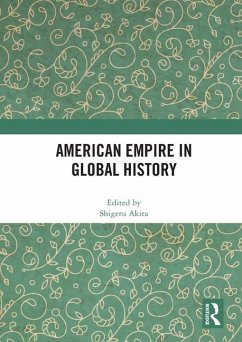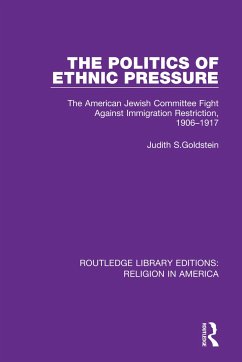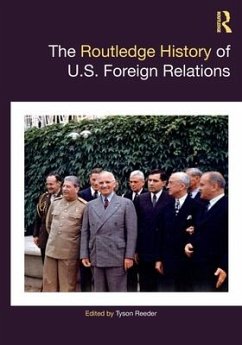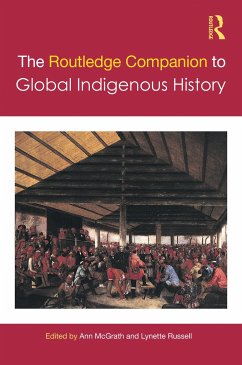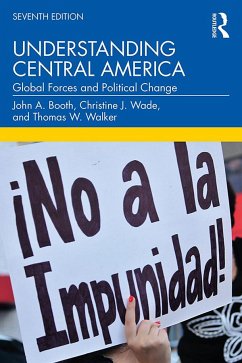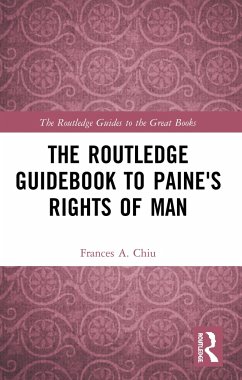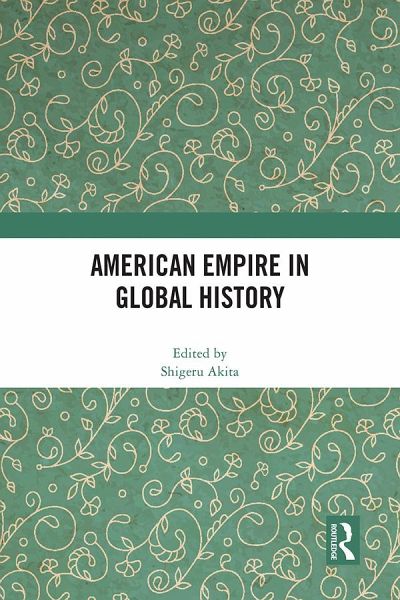
American Empire in Global History
Versandkostenfrei!
Versandfertig in 6-10 Tagen
154,99 €
inkl. MwSt.
Weitere Ausgaben:

PAYBACK Punkte
77 °P sammeln!
This book shows how the predominantly national focus that characterises studies of the United States after 1783 can be integrated with global trends, as viewed from the perspective of imperial history. The book also argues that historians of European empires have much to gain by considering the United States after 1783 as a newly-decolonised country that acquired overseas territorial possessions in 1898 and remained a member of the Western 'imperial club' until the mid-twentieth century.The wide-ranging synthesis by A. G. Hopkins, American Empire: A Global History (2018), provides the starting...
This book shows how the predominantly national focus that characterises studies of the United States after 1783 can be integrated with global trends, as viewed from the perspective of imperial history. The book also argues that historians of European empires have much to gain by considering the United States after 1783 as a newly-decolonised country that acquired overseas territorial possessions in 1898 and remained a member of the Western 'imperial club' until the mid-twentieth century.
The wide-ranging synthesis by A. G. Hopkins, American Empire: A Global History (2018), provides the starting point for contributions that appraise its main theme and take it in new directions. The first three chapters identify fresh approaches to U.S. history between the Revolution and the Civil War, suggesting ways in which the United States can be considered as a newly-decolonised country, examining shifting meanings of the term 'empire,' and reassessing the character of continental expansion. The second group deals with initiatives and responses in the Philippines and Cuba, reconsidering the character of nationalism in two of the most important overseas territories that were either ruled directly or controlled indirectly by the United States, and placing it an international context. The third group examines the exercise of U.S. power in the twentieth century, identifying aspects of international law that have been overlooked and reviewing the extensive literature on the controversial themes of the Cold War and informal empire after 1945.
The ten chapters in this edited volume bring together noted specialists on the history of international relations, the United States, and the insular empire it ruled in the twentieth century. The chapters were originally published as articles in a special issue of The Journal of Imperial and Commonwealth History.
The wide-ranging synthesis by A. G. Hopkins, American Empire: A Global History (2018), provides the starting point for contributions that appraise its main theme and take it in new directions. The first three chapters identify fresh approaches to U.S. history between the Revolution and the Civil War, suggesting ways in which the United States can be considered as a newly-decolonised country, examining shifting meanings of the term 'empire,' and reassessing the character of continental expansion. The second group deals with initiatives and responses in the Philippines and Cuba, reconsidering the character of nationalism in two of the most important overseas territories that were either ruled directly or controlled indirectly by the United States, and placing it an international context. The third group examines the exercise of U.S. power in the twentieth century, identifying aspects of international law that have been overlooked and reviewing the extensive literature on the controversial themes of the Cold War and informal empire after 1945.
The ten chapters in this edited volume bring together noted specialists on the history of international relations, the United States, and the insular empire it ruled in the twentieth century. The chapters were originally published as articles in a special issue of The Journal of Imperial and Commonwealth History.




